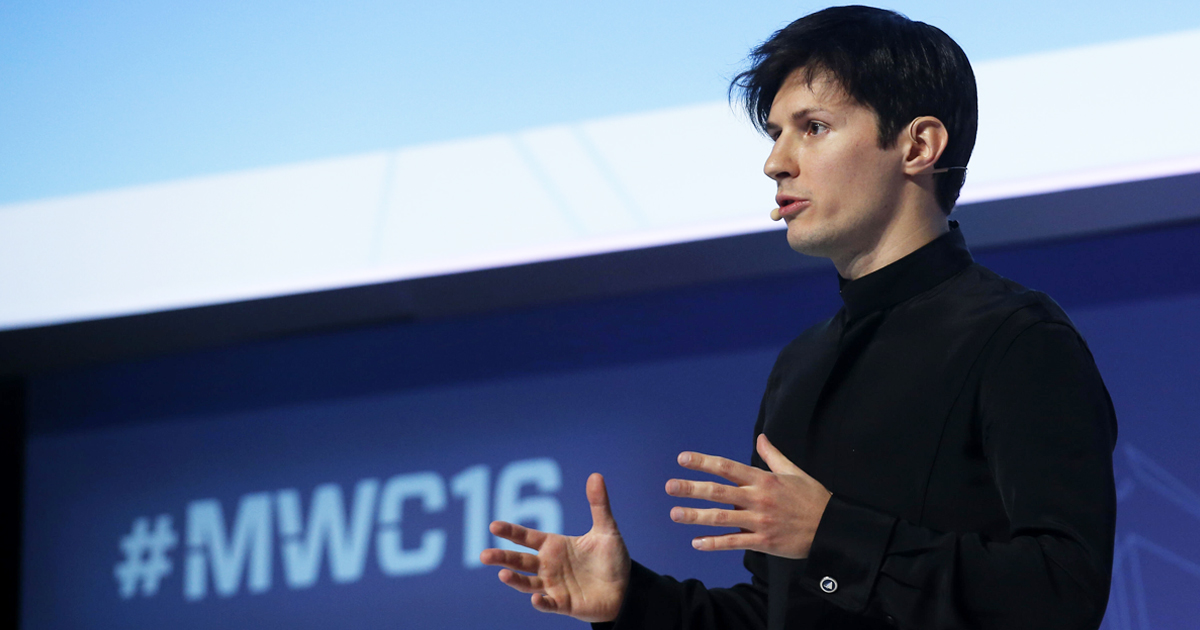Articles
Why Are Ads On Digital Media Failing To Reach The Right Audience?
Published
5 years agoon

If you are a regular user of social media platforms and also a fan of consuming content on the digital medium, then there is a very high likelihood that you have seen ads on pages you are reading or watching something. There would be times when you have been targeted by an ad which feels like it was wrongly targeted at you. Imagine if you are a vegetarian by choice and while browsing online, if you are targeted by a food delivery app which shows ads about chicken dishes. The ad would only serve to spoil the mood of the online user instead of serving its actual purpose which is to push the user to buy a chicken dish.
These wrongly targeted ads might be the side effects of performance marketing or a weak brand marketing. Performance marketing means advertising programs where advertisers pay only when a specific action occurs. These actions can include a generated lead, a sale, a click, and more. Inshort, performance marketing is used to create highly targeted ads for a very specific target audience at a low cost. Performance marketing usually means high volume for a very specific cost.
Brand marketers on the other hand believe in narrowly defining target audiences but end up spending a lot of money on ad placements. Gautam Mehra, CEO, Dentsu Programmatic India & CDO, Dentsu International Asia Pacific said, “You’ve defined a persona, you know the emotions you want to elicit, but then you buy a YouTube masthead and CricInfo sponsorships because IPL is up. If brand advertisers look at audience-based buys more deeply than just placements, you will see more relevant ads (sic.)”
ALSO READ: How Digital Marketing Is Impacted Due To The COVID-19 Pandemic
Performance marketing is more of a sales function rather than a marketing function and is about meeting the cost of acquisition. This is a reason why budgets are usually high for performance marketing. Mehra goes on to add, “the fact is that an engineer can out-beat FMCGs on performance marketing. Advertisers who have cracked this are spending 10x and are on an ‘always on’ mode (unlike time-bound brand campaigns.)”
There is always the case of supply and demand, with the supply usually exceeding the demand on digital platforms. Ultimately, it boils down to the choice between no ad versus low relevance ad and it is quite easy to guess that having a low relevance ad is better.
Arvind R. P., Director – Marketing and Communications at McDonald’s India (West and South,) said “McDonalds’ for instance, has seen its share of spends on digital grow from 20% levels a couple of years back to over 40% at present. Outcomes of this journey have been encouraging, proven by our media-mix-modelling and other key metrics. We have seen best results from an optimal mix of Television plus digital (sic.)” Moreover, Arvind also believes performance marketing only approach could turn out to be more suited to short term, versus a more consistent full funnel effort. The latter ensures adequate emphasis on building consideration, as well as growing transactions. Arvind feels digital is a complex medium which needs investment in the right talent who could use the right tools. Brands which underestimate the need for the investment are often disappointed from the return on investment from the digital medium.
With the constantly changing consumer dynamics marketers are now shifting to unscripted marketing which frankly needs more insights into the consumer mindset. The lack of marketers to do the proper research is why digital medium is plagued with irrelevant ads.


The workplace has undergone massive changes in the last century. At the turn of the Industrial Revolution, any workplace was dominated by men while the women were delegated to run the homes. However, with the advent of the internet and new and exciting technologies, workplaces have undergone a tectonic shift. Women are no longer comfortable staying at home and are instead opting to lead teams and organisations. As every year passes, we get closer to true gender equality, women have proven time and again that they are equally capable to get the job done if not better in some instances. Names like Wolfe Herd (Bumble founder,) Kylie Jenner (Kylie Cosmetics founder,) Masaba Gupta (Masaba clothing label founder) are just some of the names who are known for leading world famous brands with their unique style of leadership.
As the world celebrates International Women’s Day, we bring to you five women founders who run world famous and successful startups.
1) Upasana Taku-MobiKwik
If you are an Indian and are used to doing online shopping, more often than not at the time of payment, you would be directed to a payment gateway. One of these gateways would normally be MobiKwik. The startup is a well known name in the digital payments and digital wallet space. MobiKwik was founded by Upasana Taku in 2009, who prior to founding MobiKwik used to work with PayPal. Today Upasana Taku is also in charge of bank partnerships, business operations, and talent acquisition at MobiKwik.
2) Richa Kar-Zivame
An enthusiastic MBA student, Richa Kar, developed an online lingerie shopping platform in the year 2011. Currently, Zivame is India’s leading online lingerie store with a valuation of more than $ 100 million. The brilliant idea for her own lingerie business came to light when Richa tracked Victoria’s Secret’s sales, who was one of her clients when she was working at SAP. She observed the lingerie sales figures reached peaks overseas but, Indian women were not provided with the similar innerwear. While Richa was studying the Indian lingerie market, she realized the social embarrassment in India surrounding lingerie shopping. Today Richa Kar could be credited with destigmatising the uneasiness surrounding lingerie shopping in India.
3) Falguna Nayar-Nykaa
After a long stint as an investment banker, Falguni Nayar founded Nykaa.com in the year 2013. An online one stop shop for beauty products from Indian and international brands, Nykaa changed the world of online shopping. Who would have ever thought buying makeup online would be so easy? Falguni Nayar proved many critics wrong and created a brand new place for people who love experimenting with styles, designs and colors.
ALSO READ: Zivame: Founding Story
4) Sabina Chopra-Yatra.com
Yatra.com is a popular Indian website for making flight and hotel bookings. Sabina Chopra was instrumental in identifying the potential for travel commerce in India and people moving towards cheaper or easier travel. By the time, people started looking to make bookings, Sabina made sure Yatra.com was already in place. Sabina was the former Head of India Operations of eBookers, which is also an online travel company based in Europe. Along with this, she was also working with Japan Airlines which further adds to her experience in the travel industry.
5) Rashmi Sinha-SlideShare
SlideShare allows people to upload and access their presentations online. While this feature is presently available everywhere, SlideShare was one of the first players in making this happen. Rashmi Sinha was one of the founders of the presentation sharing platform SlideShare. The company became so successful that in 2012, LinkedIn acquired the company for an amount of $100 million.
Let us know in the comments if you know any other wonderful women who have become leaders of their right or have started up and are doing extraordinary things. We at Startup Stories wish a wonderful Women’s Day to all the women in the world who are changemakers.
Articles
From Unicorn To Bankruptcy; Knotel Bears The Brunt Of COVID-19 Pandemic
Published
5 years agoon
February 8, 2021
It is no secret that in the fast paced world of startups, fortunes can change at the snap of fingers. Sometimes startups tend to scale so quickly that they become unicorns and sometimes the fortunes reverse so quickly that a startup can immediately go bankrupt from being a unicorn. The latter was the case for an American property technology startup Knotel, who are now bankrupt due to the disruptions by the COVID-19 pandemic.
Knotel is a property technology company quite similar to WeWork. Knotel designed, built and ran custom headquarters for companies which It manages the spaces with ‘flexible’ terms. Knotel does a mix of direct leases and revenue sharing deals. Knotel marketed its offering as ‘headquarters as a service’ or a flexible office space which could be customized for each tenant while also growing or shrinking as needed. For the revenue-share agreements, Knotel solicits clients, builds out offices, and manages properties, and shares the rent paid to it by the client with the landlord. This model is the majority revenue generator for Knotel.
In March 2020, just before the COVID-19 pandemic unleashed its economic destruction on the world, Knotel was valued at $ 1.6 billion. What is even more interesting is Knotel raised $ 400 million in Series C funding in August 2019 which led to its unicorn status. However, with the COVId-19 pandemic and its consequent lockdowns and curfews by various governments across the world, startups and businesses shifted to a remote working model. This in turn led to startups pulling out of Knotel properties to cut down on working costs.
ALSO READ: Quibi : Startup With A Billion Dollar Launch To Shutting Down All In Six Months
In late March 2020, according to Forbes, Knotel laid off 30% of its workforce and furloughed another 20%, due to the impact of the coronavirus. It was at this point that Knotel was valued at $ 1.6 billion. The company had started the year with about 500 employees. By the third week of March,Knotel had a headcount of 400. With the cuts, about 200 employees remained with the other 200 having either lost their jobs or on unpaid leave, according to Forbes.
In 2021, Knotel filed for bankruptcy and agreed to sell its assets to Newmark, one of their investors for a total of $ 70 million dollars. As work culture is still undergoing changes as a consequence of the COVID-19 pandemic and with many companies realising that remote work model saves costs and improves work efficiency, the flexible workspace sector would continue to face challenges. Knotel is just the tip of the iceberg and is a warning call for the flexible working spaces industry.
Articles
5 Reasons Why Telegram Founder Pavel Durov Thinks Whatsapp Is Dangerous
Published
5 years agoon
January 25, 2021
Whatsapp found itself in the midst of a public relations nightmare over its latest privacy policy update. Data privacy is currently a widely debated topic worldwide and Whatsapp has found itself in the midst of this debate time and again. However the latest update seems to have irked a lot of people enough for them to make the shift to Telegram and the much recent app, Signal. Telegram Messenger was launched in 2013 and although it is not as well known as Whatsapp, it enjoys quite an amount of popularity owing to its data security and encryption.
Pavel Durov, the founder of Telegram Messenger, is no fan of Whatsapp and he believes Whatsapp is dangerous and not safe. Elucidating more on the topic, Durov made his reasons known in a blogpost he published in late 2020. Here are the five reasons why Pavel Durov thinks Whatsapp is dangerous.
1) If Jeff Bezos’ phone can be hacked via Whatsapp then nobody is safe.
One of the richest men in the world and the founder of Amazon, Jeff Bezos’ phone was allegedly hacked by Mohammed Bin Salman, the crown prince of Saudi Arabia. Some of Bezos’s private communications and images were taken during the hack following which Whatsapp’s security was questioned.
2) The United Nations recommends its officials to remove Whatsapp from their devices
The United Nations recommends its officials to not use Whatsapp because it thinks Whatsapp is not a secure mode of communication. In June 2019, a U.N., spokesman Farhan Haq said, “The senior officials at the U.N. have been instructed not to use WhatsApp, it’s not supported as a secure mechanism (sic.)” This directive came when independent U.N. experts found a possible involvement of Mohammed Bin Salman, the crown prince of Saudi Arabia, in the alleged cyber attack of Jeff Bexos’ phone in 2018.
3) End to end encryption does not guarantee security.
Durov says “in their marketing, WhatsApp uses the words “end-to-end encryption” as some magic incantation that alone is supposed to automatically make all communications secure. However, this technology is not a silver bullet that can guarantee you absolute privacy by itself (sic.)”
ALSO READ: Users Flock To Signal Messaging App After Whatsapp’s Latest Privacy Policy Update
4) Chat backups on Android and Apple cloud are not encrypted.
Pavel Durov does not believe chat backups in the cloud are safe and says “Users don’t want to lose their chats when they change devices, so they back up the chats in services like iCloud – often without realizing their backups are not encrypted. The fact that Apple was forced by the FBI to abandon encryption plans for iCloud is telling (sic.)”
5) Backdoors continue to exist in Whatsapp
“There are backdoors. Enforcement agencies are not too happy with encryption, forcing app developers to secretly plant vulnerabilities in their apps. I know that because we’ve been approached by some of them – and refused to cooperate. As a result, Telegram is banned in some countries where WhatsApp has no issues with authorities, most suspiciously in Russia and Iran (sic,)” claims Durov in his blogpost.
As data privacy is becoming more and more important in the current day and age of the internet, we wonder what messaging application is totally safe.
Recent Posts
- Zoho Pay Debuts as India’s New UPI Challenger, Taking on PhonePe, Paytm, and Google Pay
- Meta Expands AI-Powered Reels Translation to Hindi and Portuguese, Enhancing Global Creator Reach
- Dunzo’s Collapse: Reliance’s ₹1,645 Crore Loss Signals Challenges in India’s Hyperlocal Delivery Market
- Zoho Arattai vs WhatsApp: 5 Reasons India’s Homegrown Messenger Is Winning in 2025
- BMW’s New Logo Debuts Subtly on the All-Electric iX3: A Modern Evolution
- iPhone 17 India Price, Features & Availability: All You Need to Know
- Apple’s iOS 18.7 vs iOS 26: Which Update Should You Choose for Your iPhone in 2025?
- Deep-Tech Startup EndureAir Raises INR 25 Crore from IAN Alpha Fund to Boost Drone Innovation
- Venture Catalysts Raises Rs 150 Crore to Boost Multi-Stage VC Platform and AI Capabilities
- U.S. AI Startup Anthropic Expands Global Ban to Tackle Chinese Tech Influence
- Apple Achieves 13% Growth in India with $9 Billion Sales and New Flagship Stores in FY25
- OYO Achieves Record Profitability in FY25 with Deferred Tax Boost and New Corporate Identity
- MPL to Lay Off 60% of India Workforce Following Online Gaming Ban
- NCLT Approves Amalgamaxtion of Info Edge Subsidiary Makesense with PB Fintech
- Larry Page: The Visionary Co-Founder Behind Google’s Global Success
- Meet the 13 Deeptech Startups Empowered by BIGShift Accelerator in India
- ShareChat Appoints Neha Markanda as CBO
- Pune’s SuperGaming Secures $15M to Expand in Emerging Markets
- Swiggy DeskEats: Office Food Delivery Launched in 30 Cities
- Tim Cook: Apple Posts Record India Growth in iPhone, Mac & Services

Zoho Pay Debuts as India’s New UPI Challenger, Taking on PhonePe, Paytm, and Google Pay

Meta Expands AI-Powered Reels Translation to Hindi and Portuguese, Enhancing Global Creator Reach











Rhett Kreitner
April 14, 2025 at 9:56 pm
fantastic post, very informative. I wonder why the other experts of this sector do not notice this. You must continue your writing. I am sure, you’ve a great readers’ base already!
Rudolph Fowkes
May 3, 2025 at 3:21 am
I have been absent for some time, but now I remember why I used to love this site. Thank you, I?¦ll try and check back more frequently. How frequently you update your website?
Lavonda Berberian
June 1, 2025 at 8:26 pm
It’s arduous to seek out knowledgeable folks on this subject, but you sound like you already know what you’re talking about! Thanks
taxi paris
June 6, 2025 at 6:08 am
An impressive share, I just given this onto a colleague who was doing a little analysis on this. And he in fact bought me breakfast because I found it for him.. smile. So let me reword that: Thnx for the treat! But yeah Thnkx for spending the time to discuss this, I feel strongly about it and love reading more on this topic. If possible, as you become expertise, would you mind updating your blog with more details? It is highly helpful for me. Big thumb up for this blog post!
x3r7t
June 7, 2025 at 6:08 am
can i order generic clomiphene for sale can i order cheap clomiphene online cost clomid without rx can i purchase clomiphene without a prescription clomid tablets price in pakistan generic clomiphene without dr prescription where can i get clomid
Leadership Development
June 11, 2025 at 12:02 am
Write more, thats all I have to say. Literally, it seems as though you relied on the video to make your point. You definitely know what youre talking about, why throw away your intelligence on just posting videos to your blog when you could be giving us something informative to read?
Derrick Honsberger
June 30, 2025 at 4:09 am
Thanks for the sensible critique. Me and my neighbor were just preparing to do some research about this. We got a grab a book from our local library but I think I learned more from this post. I’m very glad to see such wonderful info being shared freely out there.
flood damage cleanup atlanta
July 31, 2025 at 2:33 am
I like what you guys are up also. Such clever work and reporting! Carry on the excellent works guys I?¦ve incorporated you guys to my blogroll. I think it will improve the value of my web site 🙂
b"asta binance h"anvisningskod
August 7, 2025 at 9:27 pm
I don’t think the title of your article matches the content lol. Just kidding, mainly because I had some doubts after reading the article.
toto slot login
August 21, 2025 at 8:35 pm
Good info. Lucky me I reach on your website by accident, I bookmarked it.
slot gacor 777
August 22, 2025 at 7:15 pm
Howdy are using WordPress for your site platform? I’m new to the blog world but I’m trying to get started and create my own. Do you require any coding expertise to make your own blog? Any help would be really appreciated!
Tasia Manvelito
October 6, 2025 at 1:20 am
I always was concerned in this topic and still am, regards for posting.
Merrill Blixt
November 3, 2025 at 12:02 am
Hello my friend! I wish to say that this post is amazing, nice written and include almost all important infos. I would like to see more posts like this.
Kuwin
November 6, 2025 at 10:39 am
kuwin sở hữu kho game đa dạng từ slot đến trò chơi bài đổi thưởng, mang đến cho bạn những giây phút giải trí tuyệt vời.
J88
November 6, 2025 at 6:11 pm
Đến với J88, bạn sẽ được trải nghiệm dịch vụ cá cược chuyên nghiệp cùng hàng ngàn sự kiện khuyến mãi độc quyền.
站群程序
November 10, 2025 at 11:16 am
搭载智能站群程序,自动化搭建与管理,为SEO项目提供核心驱动力。站群程序
Java Burn
November 11, 2025 at 1:53 pm
Some truly interesting info , well written and broadly speaking user genial.
谷歌蜘蛛池
November 14, 2025 at 2:31 am
利用强大的谷歌蜘蛛池技术,大幅提升网站收录效率与页面抓取频率。谷歌蜘蛛池
femipro
November 14, 2025 at 7:08 am
Thank you for sharing with us, I believe this website truly stands out : D.
glpro review
November 14, 2025 at 10:45 am
Some really nice and utilitarian info on this site, besides I believe the style has got good features.
GO88
November 14, 2025 at 1:07 pm
Tham gia cộng đồng game thủ tại Go88 để trải nghiệm các trò chơi bài, poker phổ biến nhất hiện nay.
iwin
November 14, 2025 at 6:58 pm
iwin – nền tảng game bài đổi thưởng uy tín, nơi bạn có thể thử vận may và tận hưởng nhiều tựa game hấp
Vivian Hierholcer
November 16, 2025 at 4:32 am
Hey, you used to write great, but the last several posts have been kinda boring… I miss your great writings. Past few posts are just a bit out of track! come on!
MM88
November 23, 2025 at 2:35 am
Với giao diện mượt mà và ưu đãi hấp dẫn, MM88 là lựa chọn lý tưởng cho các tín đồ giải trí trực tuyến.